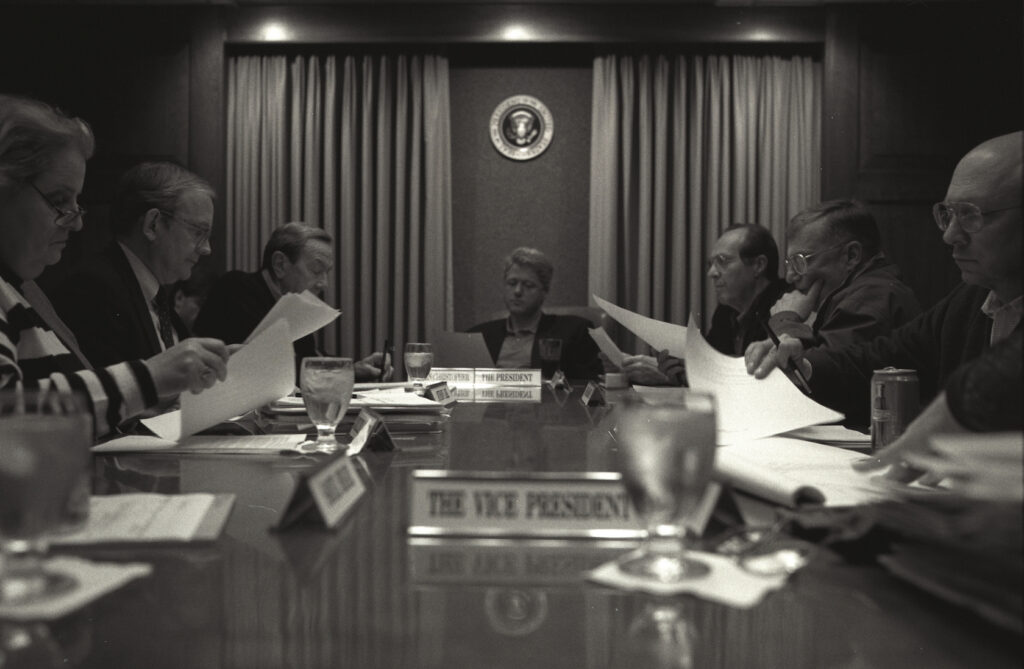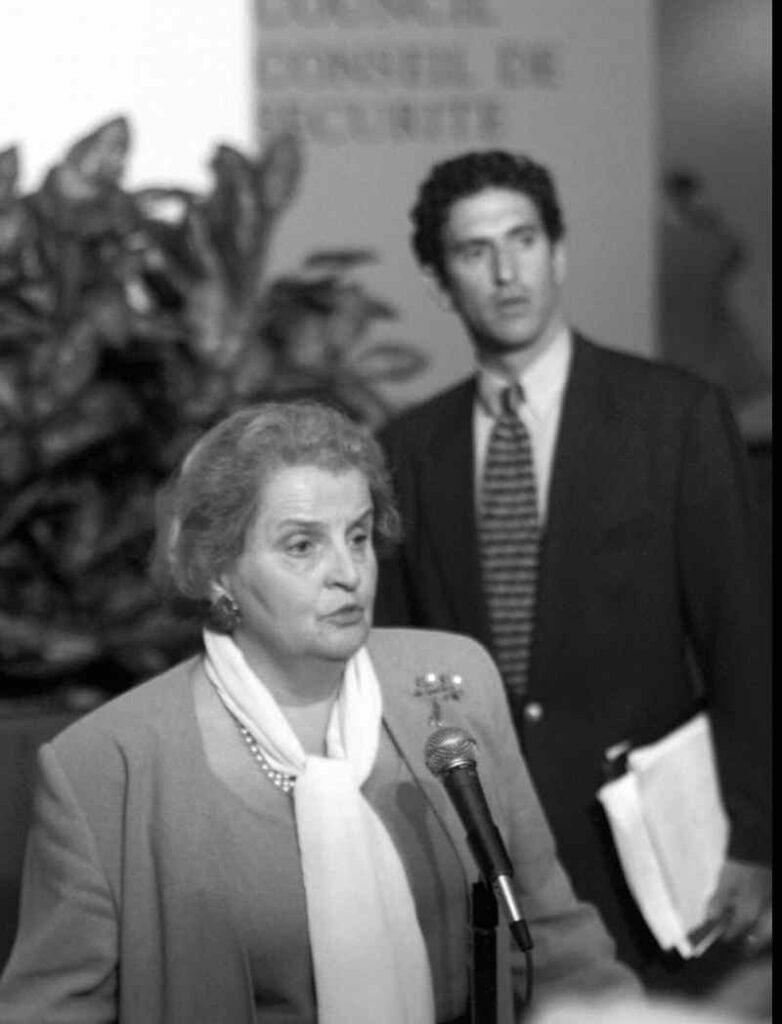

In 1993, President Clinton worked quickly to search for a diplomatic solution to end the crisis, instructing Secretary of State Warren Christopher and U.S. Ambassador to the United Nations Madeleine Albright to shape a more active role with the United States’ NATO partners to put more pressure on Milošević in the form of sanctions and military strikes. Albright was the most vociferous of Clinton’s cabinet members to call for immediate and decisive action to end the violence. A former refugee from Czechoslovakia, Albright had deep ties to the Balkan region; her brother was born in Yugoslavia and her father had served as a diplomat in Belgrade, Serbia. She advised President Clinton that the crisis seriously undermined U.S. authority and credibility throughout the world, noting that, “When U.S. leadership is being questioned in one area, it affects our leadership in others.”